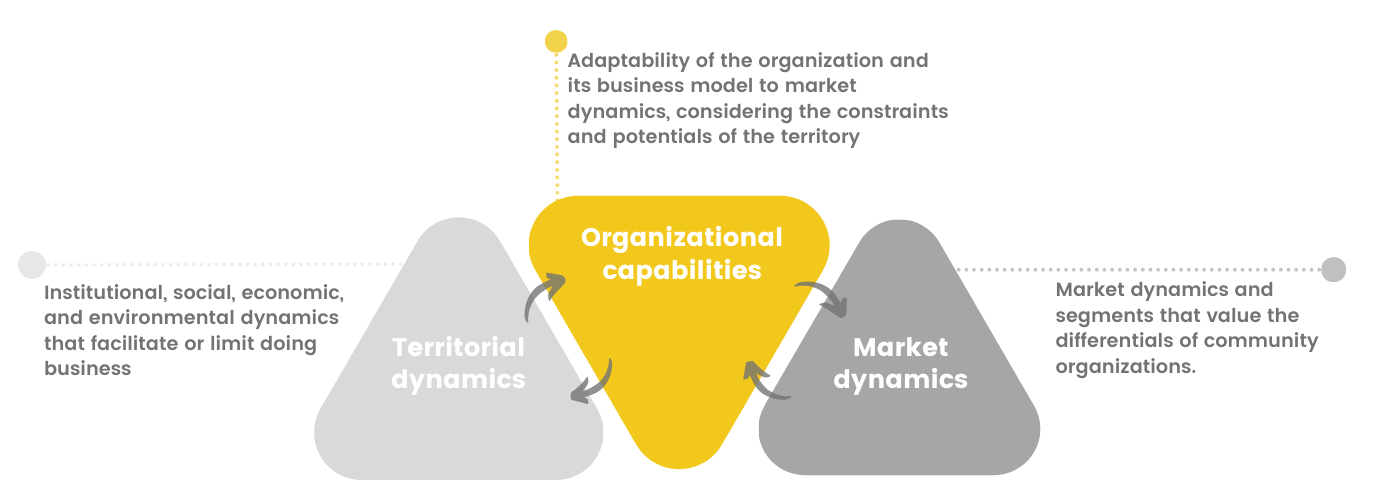We employ a work methodology based on scientific knowledge and field experience, which has been tested with over 70 rural community organizations and across 9 sectors.

Our Approach
Huella Delta was created to promote fairer, more profitable, inclusive, and sustainable market relationships. We believe that by improving the commercial relationships of the productive initiatives of rural communities—particularly the types of clients, their terms, and conditions—, opportunities are created to enhance the livelihoods of communities and protect ecosystems. This is our particular path of contribution to address economic inequalities, which are closely linked to other forms of inequality.

Our process of designing and supporting the implementation of market access and growth pathways for rural community organizations is the result of putting our working methodology into practice:
- Specificity and Breadth in Analysis: We meticulously analyze the unique characteristics of each rural community organization. We consider a wide range of possibilities in their relationship with the market, covering local, regional, national, and international levels.
- Influence of Technology in Market Relations: The digitalization in agri-food systems is changing how communities interact with the market. This includes access to new information and requirements regarding production traceability. Faced with the uncertainty of how these technological advances will influence the inclusion of producers, we thoroughly analyze their potential role in each organization’s commercial strategy. For example, how the use of mobile applications for crop management can improve efficiency and access to new markets.
- Peer Relationships and Relevant Information/Support: We design and offer specific training, tailored to the commercial development needs of each organization. We focus on translating technical knowledge into accessible language, ensuring it is understandable for producers at all educational levels.
- Low-Risk Small-Scale Trials: We prioritize decision-making based on market data. Therefore, we develop low-cost and low-risk market testing cycles. These tests are designed to optimize and guide strategic and tactical decisions and investments within the organizations, such as testing a new product in a local market before launching it on a larger scale.
We are guided by four principles:
Justice
Recognizing the disparities, imbalances, and power dynamics inherent in commercial relationships, we are committed to creating fairness by fostering partnerships with clients who share this objective.
Inclusion
We define meaningful inclusion through aspects such as business ownership structures, active involvement in decision-making, effective risk management, and ensuring a just distribution of the benefits generated.
Profitability
We prioritize understanding the conditions that lead to reaching the break-even point and surpassing it. With clear accounts, it’s possible to generate income that significantly improves the socio-economic conditions of communities.
Sustainability
We recognize the essential role of ecosystems in the reproduction of life. We promote business models and commercial relationships that understand their impact on the conservation, restoration, and protection of biodiversity.
Let’s build collective impact
We are a Social Enterprise based in Colombia. We have implemented our working methodology with over 70 rural community organizations in Colombia, Ecuador, and Peru. Do we share the purpose of contributing to the improvement of rural communities’ livelihoods and the preservation of ecosystems through the promotion of market relationships?